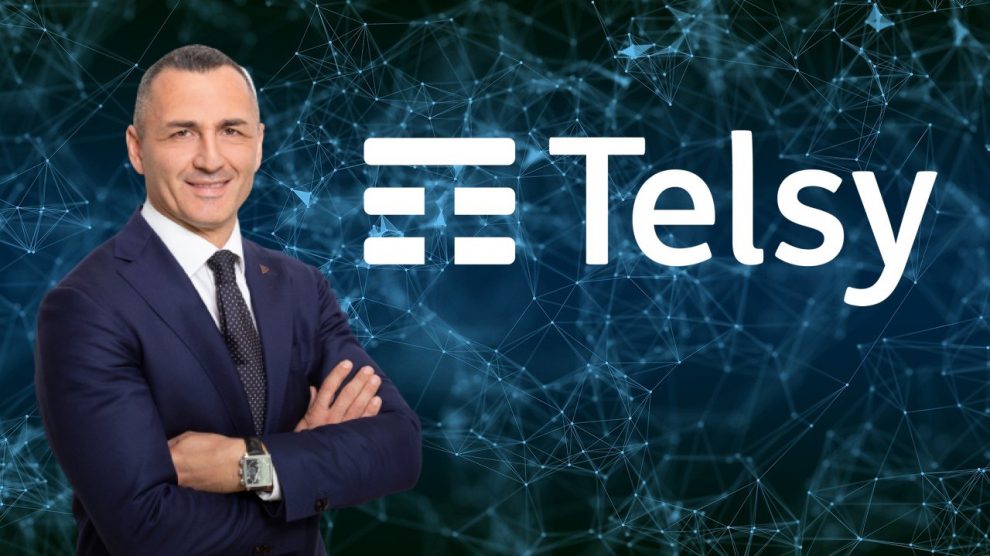We, the Italians, “are technologically dependent in every way,” and this dependence “does not help security. Where one possesses and controls their own technological skills, they control security more effectively.” Thus spoke Nunzia Ciardi, deputy director of the National Cybersecurity Agency (NCA), at the “New Criminal Threats” conference recently organised by the Campus Bio-Medico University of Rome.
Given that the NCA was set up to strenghten Italy’s cyber resilience, these statements could either be a warning or an invitation to tech companies in Italy. A country whose security depends on technologies that are developed and managed elsewhere, often outside the borders of the European Union, a habit that comes with the now well-known risks linked to network and data control.
Telsy intends to be a company with its own technologies – not just one, but more than one – in a world that adopts foreign products more often than not. The TIM Group company operates in communications security and cybersecurity, and the government can exercise its Golden power – i.e. its lawful intervention in the dealing of private business to safeguard the nation’s strategic interest – over it.
“The NCA, along with the large slice of the National Recovery Plan that’s devoted to digital technology, confirm Italy’s need to possess solutions it has full control over to guarantee the security of data and communications,” explained Eugenio Santagata, CEO of Telsy.
These issues precisely brought the manager to adopt an optimistic view of the country’s future: “in the next 2 to 4 years the digital security landscape will be very different, with more operators in ‘coopetition’ with each other,” the CEO told Decode39. And Telsy “will be a medium-large player.”
The turning point for the company came in 2021, said Mr Santagata, who joined Telsy last April. Trained at the Nunziatella military school in Naples and later at the military academy in Modena, the CEO boasts a lengthy operational background and solid international experience in the high-tech industry. He founded Cy4gate, a leading company in the field of cyber-intelligence.
Speaking with Decode39, Mr Santagata laid out the two elements at the heart of Telsy’s strategy, which go hand in hand with a strong regulatory and governmental context that guarantees a very high level of innovation and quality. “Security of information systems and encryption (infosec), to protect data and information in all their forms, as well as the integrity of communications (comsec), capable of preventing unauthorised access to data. These elements are perfectly integrated within Telsy,” he explained.
There’s more to the company, though. “On the one hand, we have proprietary products and solutions developed with Italian expertise. On the other, we can boast a strong synergy with the other companies in TIM Group, starting with Olivetti and Noovle, to better tackle the crucial challenge of cloud computing. A collaboration that guarantees openness on the market while maintaining a strong, distinctive positioning,” continued the CEO.
“The numbers speak for themselves: in 2021, business volume will grow by 45%, thanks in part to solutions of interest to the civilian market,” explained the manager. But the real challenge in Italy is for small and medium-sized enterprises (SMEs), where “we need to raise the level of awareness of the risks associated with the exposure of information and communications.” The company hopes the NRP will drive the economy as well as a change in mentality.
Telsy’s growth strategy starts in Italy, “where the cybersecurity market exceeds €2 billion a year. But it does not stop here,” continued Mr Santagata. There is, in fact, “an international security market, chiefly governmental, that the company is looking at.”
The company is bent on offering solutions of both military and civil interest (dual-use), ranging from preventive and contextual risk analysis (threat intelligence) to the management and monitoring of risk scenarios (incident response team and monitoring), up to the adoption of open and collaborative analysis and control tools (open-source intelligence and decision intelligence).
In addition, Telsy will soon be introducing secure video conferencing solutions that are “already successfully used in the government sector,” explained the CEO, and instant messaging apps that are more secure than the commonly known ones, such as WhatsApp and Signal.
“Human error is certainly a weak link in the security chain. But we often underestimate our smartphones, in which we store everything, for personal or professional use.” That’s why Telsy is also developing a solution to detect spyware inside mobile devices, an “example of how cryptography can converge with information security.”
While speaking of countering threats, Mr Santagata evoked the word “ecosystem,” the mantra of cybersecurity in advanced countries such as Israel. “This is also being understood in Italy,” he observed; “a virtuous ecosystem, where the government (starting with the intelligence community and the armed forces), companies, academia and structured finance operate synergistically, is capable of transforming the world of security into a business opportunity. All it takes is the will to do so.” And the executive is confident about Italy.
Telsy already put its skin in the game by buying a 33% share in Quantum Telecommunications Italy, or QTI for short. This startup is a spin-off of the National Research Council within the National Institute of Optics in Florence, which is active in the field of quantum communications on optical fibre and emerging technologies.
QTI is working on cutting-edge tech like Quantum Key Distribution, which harnesses the properties of light at the quantum level to detect attacks and violations of a given communication channel in real-time, thus guaranteeing the complete security of the transmission.
“This is Italy’s answer to the world of quantum computing, to ensure that the encryption keys for our communications can withstand attacks from quantum computers – which are capable of processing thousands of pieces of information in parallel and at the same time, rather than performing the sequential calculations of traditional computers,” concluded Mr Santagata.




